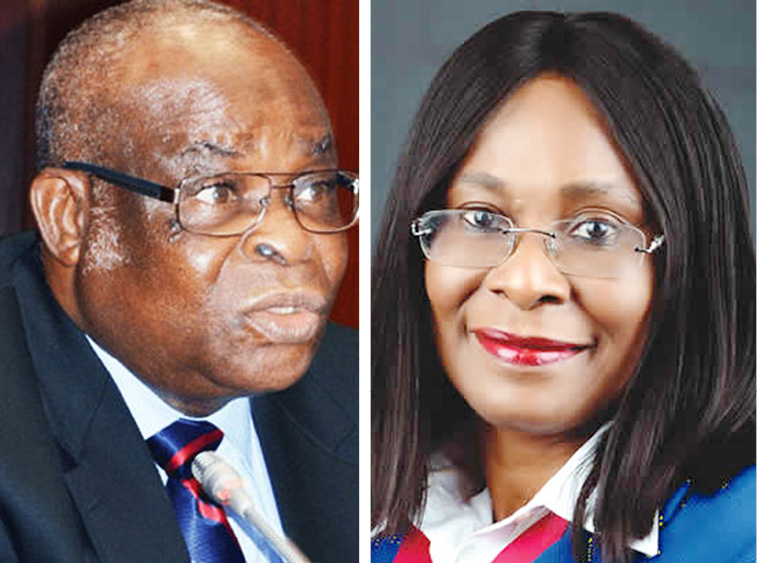Issues, challenges of arbitration dominate 2018 CIArb conference
The 2018 Annual Conference of the Chartered Institute of Arbitrators (CIArb), Nigeria branch, has raised a lot of issues and challenges that have continued to reverberate. The chairman of the branch, Mrs. Adedoyin Rhodes-Vivour, in her welcome address said the theme of the conference, ‘Arbitration and ADR in Africa: Challenges, Gains and Lessons for the […]

The 2018 Annual Conference of the Chartered Institute of Arbitrators (CIArb), Nigeria branch, has raised a lot of issues and challenges that have continued to reverberate.
The chairman of the branch, Mrs. Adedoyin Rhodes-Vivour, in her welcome address said the theme of the conference, ‘Arbitration and ADR in Africa: Challenges, Gains and Lessons for the Future’, was apt to focus on contemporary frontline issues in arbitration and ADR in Africa.
“This conference gives us the opportunity to ask ourselves questions; to learn from the experiences of other climes and to assess our capability and capacity in the field of international dispute resolution,” she had said.
She identified a supportive judiciary as the bedrock of successful arbitration and ADR (Alternative Dispute Resolution). A supportive judiciary, she said, “is essential to the continuing efficacy of arbitration as an effective and attractive dispute resolution procedure.
“The support of the judiciary is required prior to the process, during the process and after the resultant award has been issued. The international standard requires the support of the judiciary and prohibits judicial interference except as specifically provided in the relevant statute.”
The Chief Justice of Nigeria (CJN), Walter Nkanu Onnoghen, advised stakeholders to rely more on arbitration and other ADR mechanisms in settling commercial disputes, declaring that the court system as it is set out was not designed to ensure peace.
During the interactive session anchored by former Attorney General of the Federation, Chief Bayo Ojo, the CJN said, “having experienced both sides of formal court system and the traditional arbitration, I can assure you and I want you to know that the judicial system is not designed to ensure peace. If you want peace, don’t go to courts.”
He added that this was because in courts “you are either right or wrong. We determine the rights, liabilities and responsibilities of parties. It is not designed to ensure peace.”
However, when parties go into arbitration or settlement outside of court, Justice Onnoghen said with “no formalities, you are free and when you are free, there is understanding”, which in turn can guarantee a win-win resolution.
He said when he came on board as the CJN, there was the problem of the flight of foreign investment and the accusation that the judiciary was not doing enough to help the economy. He added that being involved in the private practice of law before he crossed over to the bench, he understands the skills and antics of practitioners, “one of which happens to be the antic of ‘I know you are right but I will make you suffer before you get your right or by the time you have it, it becomes meaningless”.
Confronted with these problems, he said he realized that there was the need to give assurance to foreign and local investors that their investments are safe. As such, he said, he had to come up with a practice direction which provided among others that once an arbitration clause was included in an agreement, any party that goes to court to resolve disputes arising from the agreement without first utilizing the arbitration mechanism would be liable to damages.
One of the panellists in the session on “Arbitration in Africa: Hot Topics, Evolving Issues, Practices, Solutions”, Dr Gaston Kenfack Douajni, said African arbitrators must show that they have the capacity to be appointed as arbitrators, or just asked to be named as arbitrators simply because they are Africans.
Douajni, who is the President of Association for the Promotion of Arbitration in Africa, added that there is need to continue to build the capacities of arbitrators in Africa to enable them meet up with international best practices.
With the success story of the Kigali International Arbitration Centre as shared by Thierry Gakuba Ngoga, a legal practitioner from Rwanda, for Nigeria to be accepted as a favourable seat of arbitration, a strong and supportive judiciary as well as a safe and secured environment must be put in place, Rhodes-Vivour said.
Speaking at the gala nite of the conference where 242 new members were inducted as fellows, members and associates, Rhodes-Vivour charged Nigerians to have confidence in appointing arbitrators from the country.
She said most countries, like Nigeria, aspire to be favourable seats of arbitration, but for this to be, there are certain parametres that have to be in place.
She said the CIArb “aptly phrased it in its centenary principles to include a good legal framework for arbitration, a safe and secure environment, and a strong and supportive judiciary. These are some of the things that will make Nigeria to be acceptable as a favourable seat of arbitration.”
